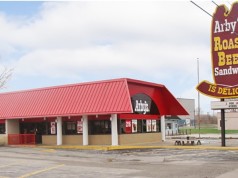MSHDA, Genesee County Land Bank launch “Blight Blitz” to demolish 1,600 vacant, foreclosed homes in Flint
Flint Mayor Dayne Walling, Genesee County Commissioner Brenda Clack, local, federal and state leaders kick off Flint’s unprecedented $20.1 million anti-blight campaign
FLINT – October 15, 2013 – (RealEstateRama) — Flint leaders and the Michigan State Housing Development Authority (MSHDA) today launched the largest residential blight removal effort in the city’s history by overseeing the demolition and cleanup of a home in a distressed neighborhood on Flint’s West Side.
Foreclosure in National News |
Foreclosure in Social Media |
The Gov. Snyder Administration, MSHDA, the U.S. Department of Treasury and the Genesee County Land Bank are partnering with city officials and neighborhood leaders on a $20.1 million initiative to help demolish more than 1,600 vacant and foreclosed Flint residential properties.
“This large-scale demolition program will strike at the blight that is weakening too many neighborhoods in Flint and other Michigan cities,” the governor said. “Tearing down these abandoned properties will reduce crime and increase property values. That will encourage the people who live in these neighborhoods to stay in their homes and be part of the revitalization of their communities.”
The Flint-area “Blight Blitz” will raze approximately 25 percent of the city’s 5,600 abandoned homes. Demolitions will take place in batches of 50 to 100 houses.
“This is the largest single award of blight eradication money to Flint at one time and will be a big strike at the blight that undermines too many neighborhoods,” said Flint Mayor Dayne Walling. “We hope this inspires the people who live in our neighborhoods to take heart and continue to make Flint a btter place to live, work, play grow businesseses and raise families.”
MSHDA Executive Director Scott Woosley,Flint Mayor Walling, Genesee County Commissioner and Land Bank Board Vice Chair Brenda Clack, Michigan Consumers Energy Senior Vice President of Distribution and Customer Operations Daniel J. Malone, and other local and state officials today kicked off Flint’s blight eradication effort with the demolition of an abandoned Barth Street house on Flint’s west side.
“MSHDA could not have moved forward on this initiative without the governor’s strong leadership and support from our federal, state and local partners. By working together at the ground level, we will reverse the challenges caused by blight,” Woosley said.
The blighted homes, which are all owned by public entities, are broken into five areas – tipping point neighborhoods, re-investment neighborhoods, buffer areas, key corridors and those houses around Carpenter Road Elementary. Demolition will take place in key corridor areas in the north central portion of Flint, including areas along North Saginaw Street, East Pierson Road and Martin Luther King Avenue.
“Consumers Energy is pleased to be part of this civic, private and public partnership to help revitalize Flint neighborhoods and create a better living environment for residents,” Malone said. “We are doing our part to make this program successful, by retiring at no cost the natural gas services leading to each of the homes to be torn down.”
Near the center of the city and expanding out are re-investment neighborhoods, which previously had 69 houses slated for demolition. Re-investment neighborhoods are neighborhoods near schools with recent investments in new or renovated housing through the Federal Neighborhood Stabilization Program.
On the edges of the city are tipping point neighborhoods – which have less than 20 percent vacancy rates – with 363 houses previously proposed for demolition. These neighborhoods have some of the more stable neighborhoods in the area immediately surrounding the city of Flint that have recently experienced an increase in vacancy and foreclosure.
Flint has identified 715 houses to be razed in buffer areas, which are areas surrounding re-investment and tipping point neighborhoods.
Flint’s funding comes as part of the $100 million MSHDA was allocated in July 2013 by the U.S. Treasury as part of the federal Troubled Asset Relief Program’s Hardest Hit Fund, designed to help homeowners in states hit hardest by the housing crisis. This first-in-the-nation campaign will focus efforts on decreasing foreclosures and stabilizing neighborhoods through the demolition and greening of vacant and abandoned properties.
The Michigan State Housing Development Authority (MSHDA) provides financial and technical assistance through public and private partnerships to create and preserve decent, affordable housing for low- and moderate-income residents and to engage in community economic development activities to revitalize urban and rural communities.* *MSHDA’s loans and operating expenses are financed through the sale of tax-exempt and taxable bonds as well as notes to private investors, not from state tax revenues. Proceeds are loaned at below-market interest rates to developers of rental housing, and help fund mortgages and home improvement loans. MSHDA also administers several federal housing programs. For more information, visit www.michigan.gov/mshda.
Contact: Katie Bach
MSHDA Media Affairs Manager
Cell Phone: 517.643.0308




